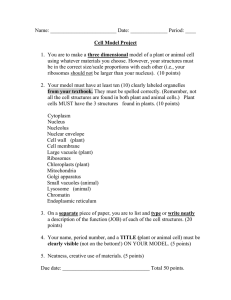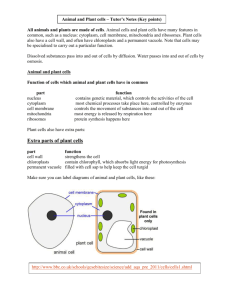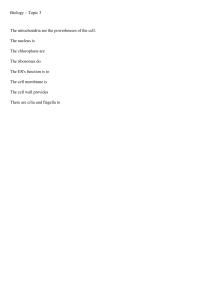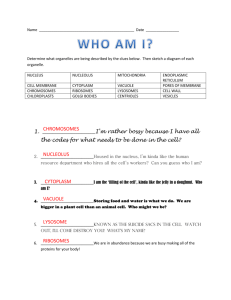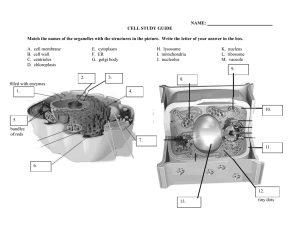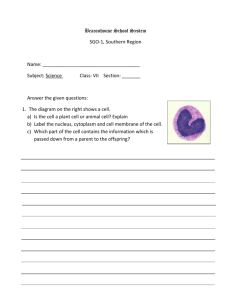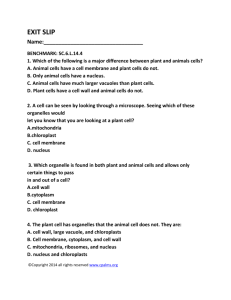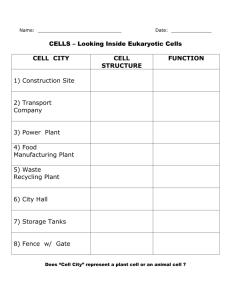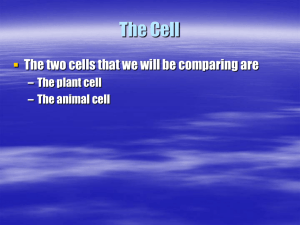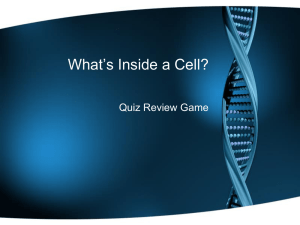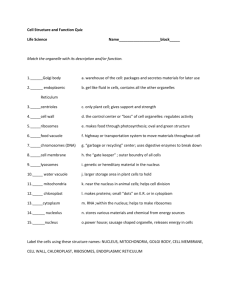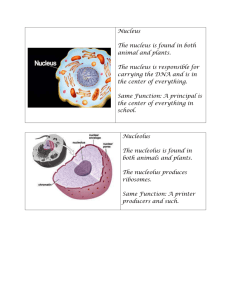Name Date Class
advertisement
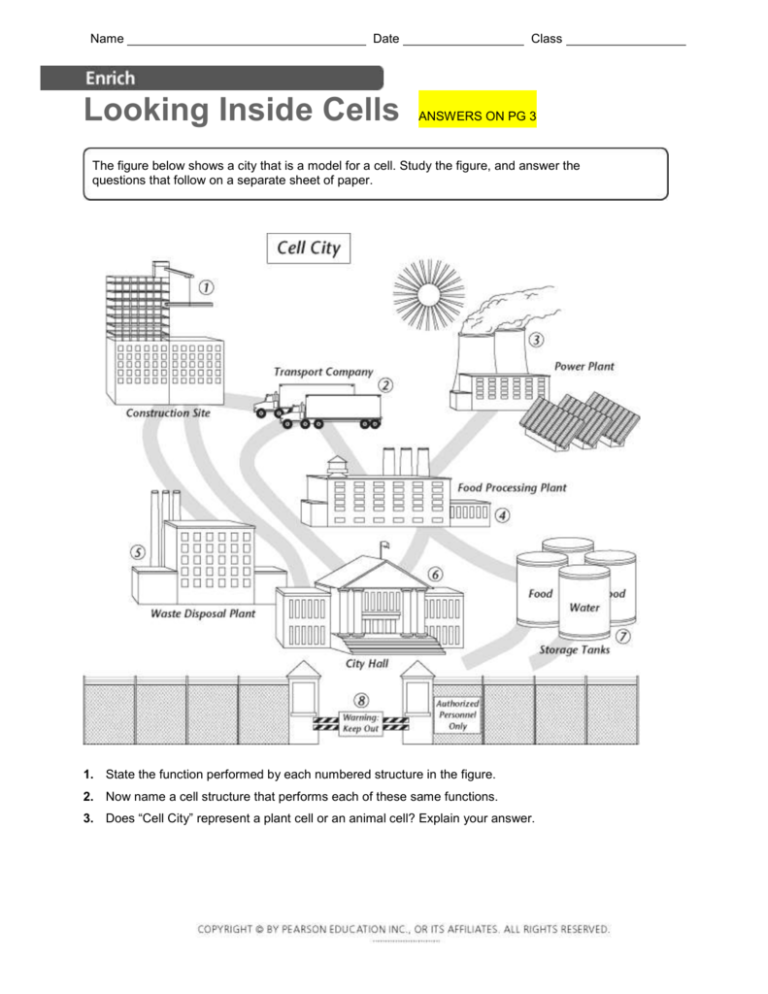
Name Date Looking Inside Cells Class ANSWERS ON PG 3 The figure below shows a city that is a model for a cell. Study the figure, and answer the questions that follow on a separate sheet of paper. 1. State the function performed by each numbered structure in the figure. 2. Now name a cell structure that performs each of these same functions. 3. Does “Cell City” represent a plant cell or an animal cell? Explain your answer. Name Date Looking Inside Cells Class ANSWERS ON PG 3 Fill in the blank to complete each statement. 1. The _______________________________________ controls the materials that enter and leave the cell. 2. Ribosomes make _______________________. 3. The ____________________ is a large structure that directs the cell’s activities. 4. The storage area of a cell is called a(n) __________________. 5. A group of organs that work together to perform a major function is called a(n) _____________________________________. 6. ___________________ are tiny cell structures that carry out specific functions in the cell. If the statement is true, write true. If the statement is false, change the underlined word or words to make the statement true. 7. _______________ Plant cells have chloroplasts, but animal cells do not. 8. _______________ The cell’s nucleus is filled with a substance called protein. 9. _______________ The specialized cells in a unicellular organism perform specialized jobs. 10. _______________ Ribosomes are made in a special region of the nucleus called the nucleolus. Looking Inside Cells Answer Key 1. (1) building new structures (2) moving materials (3) energy production (4) produces food (5) removes wastes 6) control (7) storage (8) controls what enters and leaves city 2. (1) ribosome or ER (2) endoplasmic reticulum or Golgi Bodies (3) chloroplast (4) mitochondria (5) lysosome (6) nucleus (7) vacuole (8) cell membrane 3. Cell City represents a plant cell because it contains chloroplasts. 1. cell membrane 2. proteins 3. nucleus 4. vacuole 5. organ system 6. organelles 7. true 8. chromatin 9. multicellular 10. true
